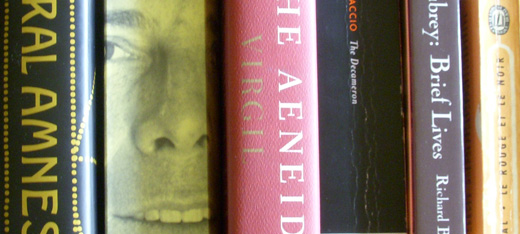Monday Morning Read
¶ In the Decameron, we’re served a Ciceronian oration on that dearest of antique topics, friedship. In other words, Boccaccio couches his story in terms of what ought to happen, and not of what usually does. Gisippus, an Athenian, is betrothed to Sophronia, but his college roommate (so to speak) and boon companion, the Roman Titus, conceives such a passionate longing for Sophronia that Gisippus simply hands the girl over to him after the wedding feast.*
I should perhaps not be so generous, if wives were so scarce and difficult to find as friends, but since I can find another wife, but not another friend, with the greatest of ease, I prefer, rather than to lose you, not to lose her exactly, but as it were to transfer her.
If this story (X, viii) were at all representative of the whole collection, none but scholars would read the Decameron. I expect that the original breathes the very best Italian going, but I’m not competent to judge.
¶ You never know where Clive James is going to go. His long piece about Fitzgerald is such an interesting meditation on style and influence** that it seemed perverse not to keep reading when I turned the page to the much shorter piece on Flaubert. This latter, however, turns out to have nothing to do with writing as such. Instead it focuses on another pet theme: the mad wickedness of totalitarian régimes. What’s Flaubert got to do with that, you may ask. Well, in one of his letters (not one of the ones addressed to George Sand), Flaubert posits an era of secular toleration that stretched “from Cicero to Marcus Aurelius.” This passage, in turn, has attracted the attention of Unamuno and Vidal, two gold-standard mistrusters of the religious impulse. Presently James is fretting about the extremism of “moderate” Islamic opinion. A whirlwind in two pages!
* Boccaccio is canonically correct — for his time, anyway — in placing the wedding ceremony in the bridal chamber, when Titus and Sophronia are alone, and they exchange vows. Later, when Sophronia is understandably sore about having been tricked on her wedding night, Titus rather scrupulously chides her for having failed to ask him who he was.
** James believes that Fitzgerald was born writing the way he did, that influence played little or no role in his development.

